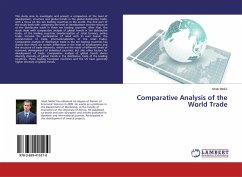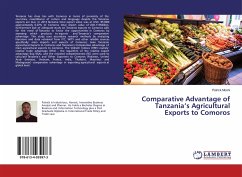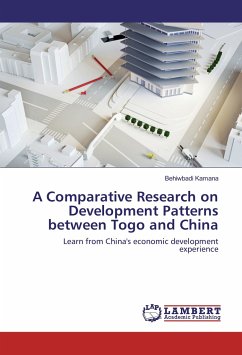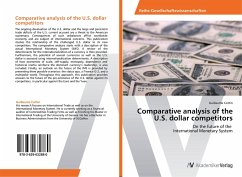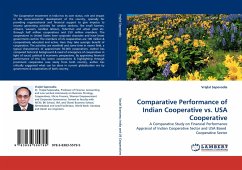
Comparative Performance of Indian Cooperative vs. USA Cooperative
A Comparative Study on Financial Performance Appraisal of Indian Cooperative Sector and USA Based Cooperative Sector
Versandkostenfrei!
Versandfertig in 6-10 Tagen
52,99 €
inkl. MwSt.

PAYBACK Punkte
26 °P sammeln!
The Cooperative movement in India has its own status, role and impact in the socio-economic development of the country, specially for providing organizational and financial support to give impetus to income generating activities for weaker sections, like small farmers, artisans, weavers, landless labours, fisherman and urban poor etc. through half million cooperatives and 250 million members. The cooperatives in United States have corporate character and have lesser government control. The members of US cooperatives are 100 million & comparatively educated and active. Here they take synergic b...
The Cooperative movement in India has its own status, role and impact in the socio-economic development of the country, specially for providing organizational and financial support to give impetus to income generating activities for weaker sections, like small farmers, artisans, weavers, landless labours, fisherman and urban poor etc. through half million cooperatives and 250 million members. The cooperatives in United States have corporate character and have lesser government control. The members of US cooperatives are 100 million & comparatively educated and active. Here they take synergic benefit of cooperation. The activities are manifold and some time in newer field, a typical characteristic of approximate 50,000 cooperatives. Author has compared historical background & need of emergence of cooperatives in light of social, political & economic perspectives. By appraising financial performance of few key sector cooperatives & highlighting through prominent cooperative case study from both country, author has critically suggested what can be done in current globalization era by government & cooperatives of both country.



